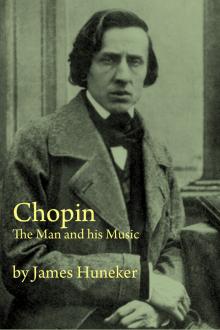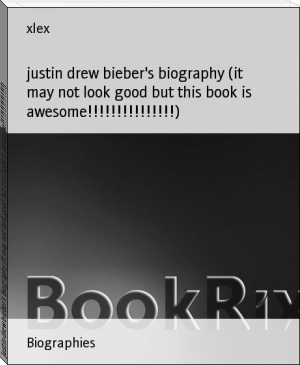Haydn, J. Cuthbert Hadden [books for new readers .TXT] 📗

- Author: J. Cuthbert Hadden
Book online «Haydn, J. Cuthbert Hadden [books for new readers .TXT] 📗». Author J. Cuthbert Hadden
Opera Concerts
The composer returned to London at the beginning of October for the winter season's concerts. These began, as before, in February, and were continued once a week up to the month of May. This time they took the form of opera concerts, and were given at the "National School of Music" in the new concert-room of the King's Theatre. No fresh symphonies were contributed by Haydn for this series, though some of the old ones always found a place in the programmes. Two extra concerts were given on May 21 and June 1, at both of which Haydn appeared; but the composer's last benefit concert was held on May 4. On this occasion the programme was entirely confined to his own compositions, with the exception of concertos by Viotti, the violinist, and Ferlendis, the oboist. Banti sang the aria already mentioned as having been written expressly for her, but, according to the composer, "sang very scanty." The main thing, however, was that the concert proved a financial success, the net receipts amounting to 400 pounds. "It is only in England," said Haydn, "that one can make 4000 gulden in one evening."
Haydn did indeed remarkably well in London. As Pohl says, "he returned from it with increased powers, unlimited fame, and a competence for life. By concerts, lessons, and symphonies, not counting his other compositions, he had again made 1200 pounds, enough to relieve him from all anxiety as to the future. He often said afterwards that it was not till he had been to England that he became famous in Germany; by which he meant that although his reputation was high at home, the English were the first to give him public homage and liberal remuneration."
Kingly Courtesies
It is superfluous to say that Haydn was as much of a "lion" in London society during his second visit as he had been on the previous occasion. The attention bestowed on him in royal circles made that certain, for "society" are sheep, and royalty is their bell-wether. The Prince of Wales had rather a fancy for him, and commanded his attendance at Carlton House no fewer than twenty-six times. At one concert at York House the programme was entirely devoted to his music. George III and Queen Caroline were present, and Haydn was presented to the King by the Prince. "You have written a great deal, Dr Haydn," said the King. "Yes, sire," was the reply; "more than is good for me." "Certainly not," rejoined His Majesty. He was then presented to the Queen, and asked to sing some German songs. "My voice," he said, pointing to the tip of his little finger, "is now no bigger than that"; but he sat down to the pianoforte and sang his song, "Ich bin der Verliebteste." He was repeatedly invited by the Queen to Buckingham Palace, and she tried to persuade him to settle in England. "You shall have a house at Windsor during the summer months," she said, and then, looking towards the King, added, "We can sometimes make music tete-a-tete." "Oh! I am not jealous of Haydn," interposed the King; "he is a good, honourable German." "To preserve that reputation," replied Haydn, "is my greatest pride."
Most of Haydn's appearances were made at the concerts regularly organized for the entertainment of royalty at Carlton House and Buckingham Palace, and Haydn looked to be paid for his services. Whether the King and the Prince expected him to give these services in return for the supposed honour they had conferred upon him does not appear. At all events, Haydn sent in a bill for 100 guineas sometime after his return to Vienna, and the amount was promptly paid by Parliament.
A Valuable Parrot
Among the other attentions bestowed upon him while in London, mention should be made of the present of a talking parrot. Haydn took the bird with him, and it was sold for 140 pounds after his death. Another gift followed him to Vienna. A Leicester manufacturer named Gardiner--he wrote a book on The Music of Nature, and other works--sent him half a dozen pairs of cotton stockings, into which were woven the notes of the Austrian Hymn, "My mother bids me bind my hair," the Andante from the "Surprise" Symphony, and other thematic material. These musical stockings, as a wit has observed, must have come as a REAL surprise to Haydn. It was this same Leicester manufacturer, we may remark parenthetically, who annotated the translation of Bombet's Life of Haydn, made by his fellow-townsman, Robert Brewin, in 1817.
Haydn's return from London was hastened by the receipt of a communication from Esterhaz. Prince Anton had been succeeded by his son Nicolaus, who was as fond of music as the rest of his family, and desired to keep his musical establishment up to the old standard. During the summer of 1794 he had written to Haydn, asking if the composer would care to retain his appointment as director. Haydn was only too glad to assent; and now that his London engagements were fulfilled, he saw no reason for remaining longer in England. Accordingly he started for home on the 15th of August 1795, travelling by way of Hamburg, Berlin and Dresden, and arriving at Vienna in the early days of September.
Rohrau Reminiscences
Soon after his return he was surprised to receive an invitation to visit his native Rohrau. When he arrived there he found that a monument, with a marble bust of himself, had been erected to his honour in a park near his birthplace. This interesting memorial consists of a square pillar surmounting three stone steps, with an inscription on each side. The visit was productive of mingled feelings to Haydn. He took his friends to see the old thatch-roofed cottage, and, pointing to the familiar stove, still in its place, modestly remarked that there his career as a musician began--a reminiscence of the now far-away time when he sat by his father's side and sawed away on his improvised fiddle.
Esterhaz once more
There is little to say about Haydn's labours as Capellmeister of the Esterhazy household at this time. Apparently he was only at Eisenstadt for the summer and autumn. Down to 1802, however, he always had a mass ready for Princess Esterhazy's name-day in September. These compositions are Nos. 2, 1, 3, 16, 4 and 6 of the Novello edition. No. 2, Pohl tells us, was composed in 1796, and called the "Paukenmesse," from the fact of the drums being used in the Agnus. No. 3 was written in 1797. It is known in England as the Imperial Mass, but in Germany as "Die Nelsonmesse," on account of its having been performed during Nelson's visit to Eisenstadt in 1800. On that occasion Nelson asked Haydn for his pen, and gave him his own gold watch in exchange.
The Austrian Hymn
It was shortly after his return to Vienna--in January 1797, to be precise--that he composed his favourite air, "God preserve the Emperor," better known as the Austrian Hymn. The story of this celebrated composition is worth telling with some minuteness. Its inception was due to Count von Saurau, Imperial High Chancellor and Minister of the Interior. Writing in 1820, the count said:
I often regretted that we had not, like the English, a national air calculated to display to all the world the loyal devotion of our people to the kind and upright ruler of our Fatherland, and to awaken within the hearts of all good Austrians that noble national pride so indispensable to the energetic fulfillment of all the beneficial measures of the sovereign. This seemed to me more urgent at a period when the French Revolution was raging most furiously, and when the Jacobins cherished the idle hope of finding among the worthy Viennese partisans and participators in their criminal designs. [The scandalous Jacobin persecutions and executions in Austria and Hungary took place in 1796]. I caused that meritorious poet Haschka to write the words, and applied to our immortal countryman Haydn to set them to music, for I considered him alone capable of writing anything approaching in merit to the English "God save the King." Such was the origin of our national hymn.
It would not have been difficult to match "God save the King," the mediocrity of which, especially as regards the words, has been the butt of countless satirists. Beethoven wrote in his diary that he "must show the English what a blessing they have" in that "national disgrace." If Haydn regarded it as a "blessing," he certainly did not take it as a model. He produced an air which, looking at it from a purely artistic point of view, is the best thing of the national anthem kind that has ever been written. The Emperor was enchanted with it when sung on his birthday, February 12, 1797, at the National Theatre in Vienna, and through Count Saurau sent the composer a gold box adorned with a facsimile of the royal features. "Such a surprise and such a mark of favour, especially as regards the portrait of my beloved monarch," wrote Haydn, "I never before received in acknowledgment of my poor talents."
Haydn's Love for It
We have several indications of Haydn's predilection for this fine air, which has long been popular as a hymn tune in all the churches. He wrote a set of variations for it as the Andante of his "Kaiser Quartet." Griesinger tells us, too, that as often as the warm weather and his strength permitted, during the last few years of his life, he used to be led into his back room that he might play it on the piano. It is further related by Dies that, during the bombardment of Vienna in May 1809, Haydn seated himself at his instrument every forenoon to give forth the sound of the favourite song. Indeed, on May 26, only five days before his death, he played it over three times in succession, and "with a degree of expression that astonished himself." As one writer puts it, the air "seemed to have acquired a certain sacredness in his eyes in an age when kings were beheaded and their crowns tossed to the rabble."
Haydn's first sketch of the melody was found among his papers after his death. We reproduce it here, with an improvement shown in small notes. There are, it will be observed, some slight differences between the draft and the published version of the air:
[figure: a





Comments (0)